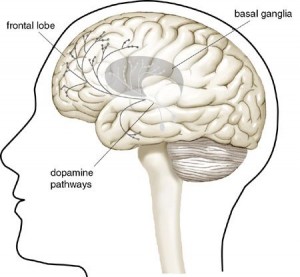Menopause and Dopamine
Menopause effects many aspects of your health, including your levels of the neurotransmitter dopamine. This neurochemical controls muscle activity and also modulates your levels of attention and motivation. Low dopamine levels may explain common menopause complaints such as forgetfulness, clumsiness and brain fog.
Here are some of the facts about the relationship between dopamine, menopause and healthy aging:
- Parkinson’s disease, a condition associated with low dopamine levels, occurs with greater frequency in postmenopausal women compared to women of the same age who are premenopausal, indicating that estrogen protects dopamine producing cells in the brain.
- Low dopamine levels may hasten the onset of menopause by promoting weight gain, which is associated with early menopause.
- Menopause decreases dopamine’s effectiveness throughout the body by promoting a decline in the number of receptors for the neurotransmitter in brain, heart and other organs.
- Levels of norepinephrine, which is made from dopamine, also decline when dopamine levels are low. Norepinephrine acts as a stress hormone in the brain, regulates the brain’s oxygen supply, and controls heart rate and blood sugar levels.
Dopamine and other neurotransmitter levels can be checked through lab testing. Natural supplements are available that increase dopamine levels without the use of hormones. For more information, contact Dr. Roizman at (828) 225-5575 or email traceyroizmandc@gmail.com
